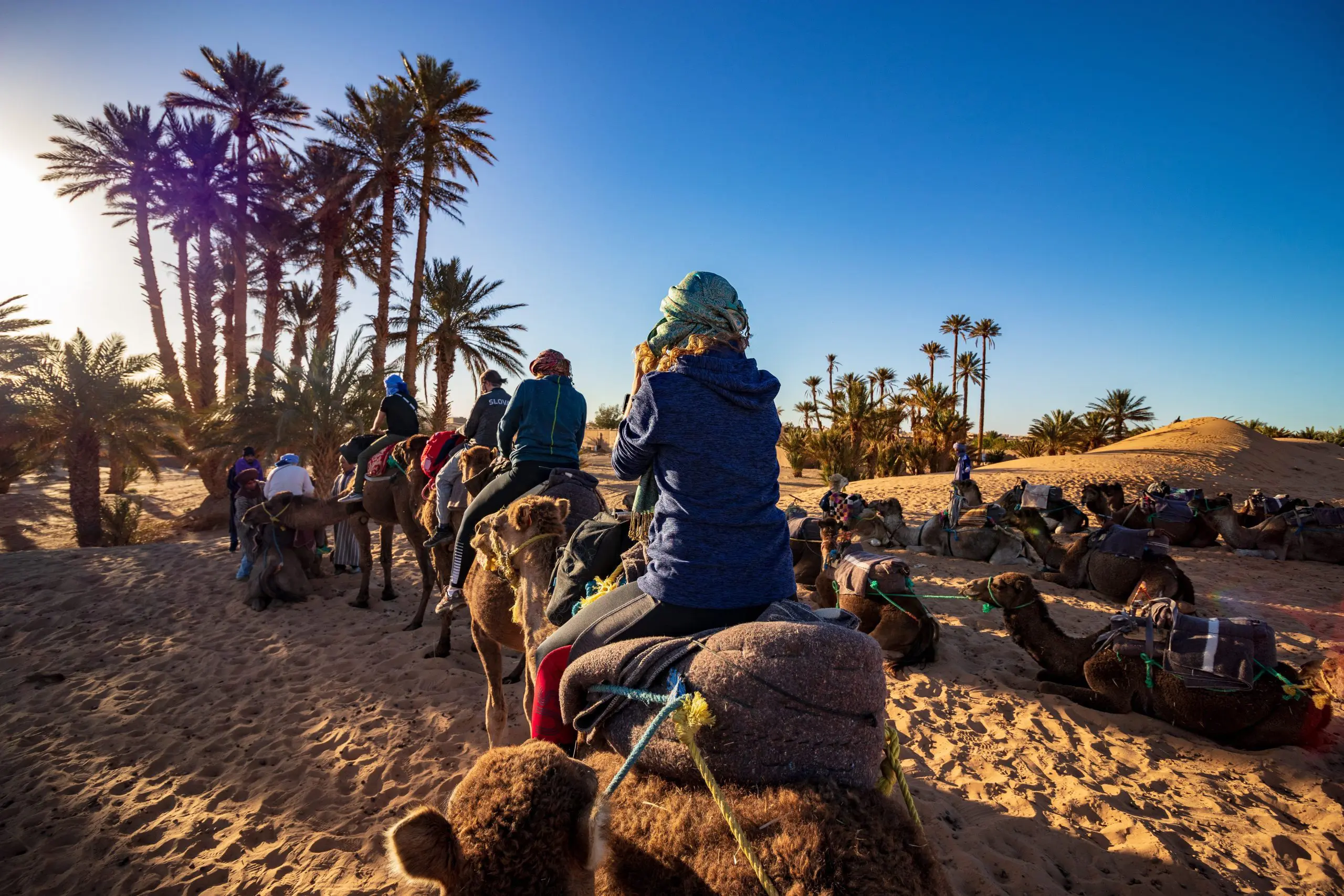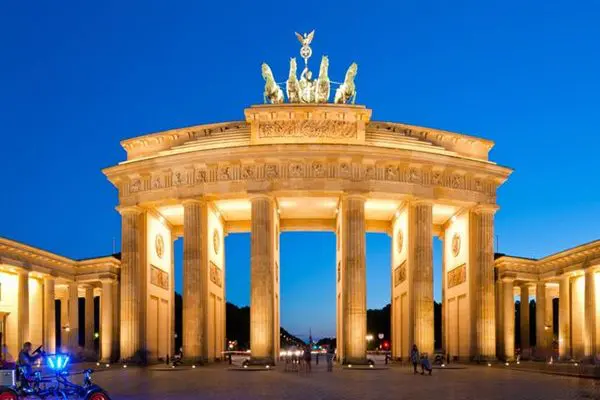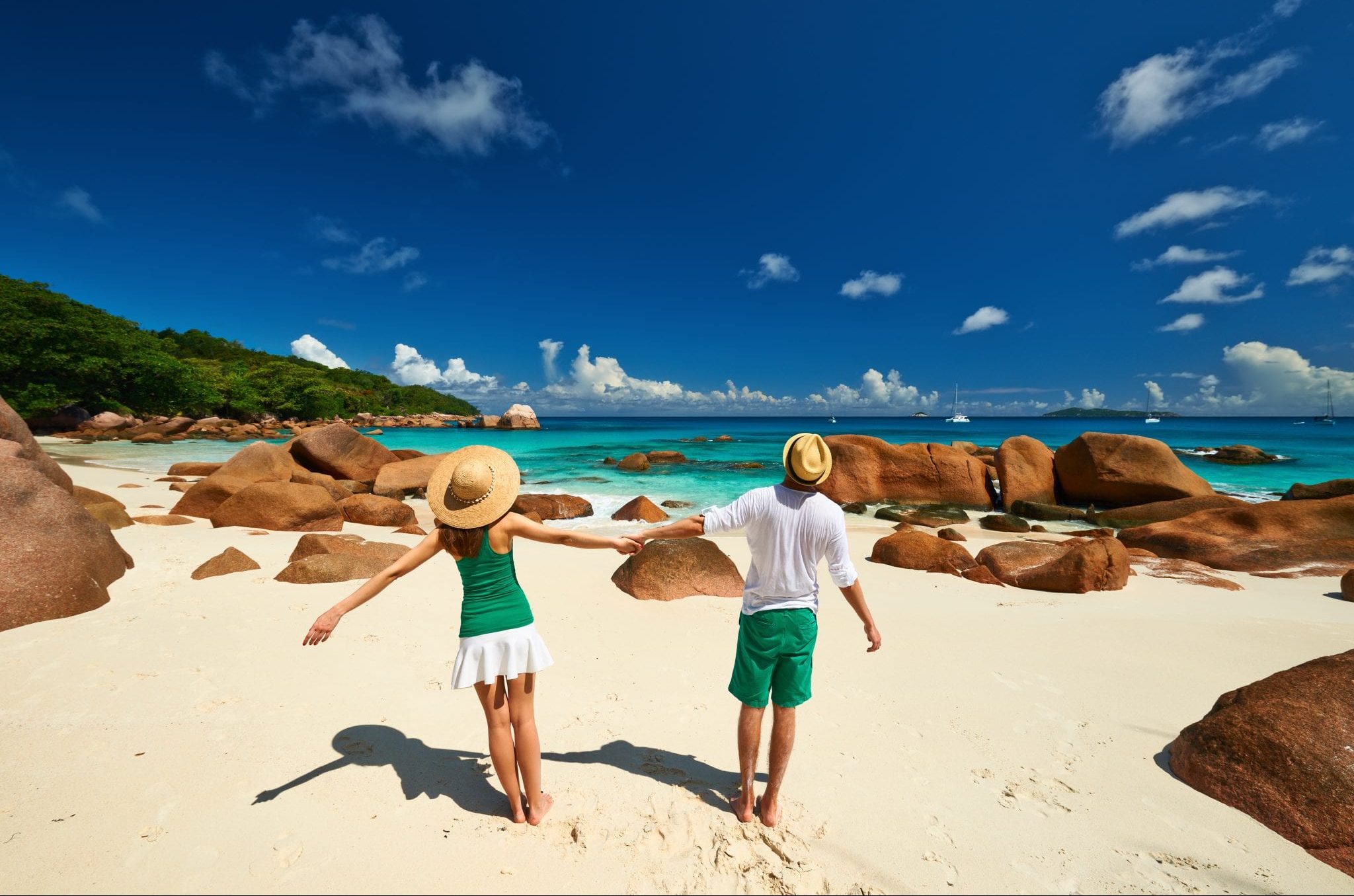Best Time To Visit Cuba
The best time to visit Cuba is from November to April when long and sunny days are combined with dry weather, making it a pleasant time for tours on the island. However, if you don’t mind rainy days, temperatures are perfectly moderate all year long due to Cuba’s tropical climate.
Early autumn is a quiet season for trips to Cuba, as the weather can get unstable on the coast, and rainfall is still dominant on most days. In autumn and winter, low precipitation creates the ideal conditions for enjoying the buzzing streets and famous landmarks. Despite frequent rains, the weather can be balmy on most summer days, and it is still the most popular season for beaches and cultural trips. Havana hosts memorable festivals, dance, and music shows. June to August is also the best time to visit Cuba to attend some traditional events. You will find the Caribbean island vibes and a vivid atmosphere whichever season you choose to visit Cuba.
Why You Should Visit Cuba: Cuba is a unique and fascinating destination that should be on every traveler’s bucket list. From the vibrant streets of Havana to the white sandy beaches of Varadero, Cuba has something to offer every type of traveler. Visitors can explore the country’s rich history and culture through its museums, art galleries, and historic landmarks. Cuba is also known for its delicious cuisine, lively music, and warm hospitality, making it a great place to connect with locals and experience the true essence of the country. Whether you’re interested in architecture, nature, or simply soaking up the Caribbean sun, Cuba is a destination that should not be missed.
Things to Consider: If you’re planning a trip to Cuba, there are a few things to keep in mind to ensure a smooth and enjoyable experience. Firstly, it’s important to understand the country’s unique political and economic situation and how it can affect travel. It’s also essential to have the right travel documents, including a valid passport and visa. Additionally, visitors should be prepared for limited internet access, so it’s a good idea to bring a guidebook or map. Cuba has a tropical climate, so packing for warm weather is essential.
Monthly Travel Guide For Cuba
Travelling in Cuba in September and October
September and October are part of the season when hurricanes and extreme weather conditions occur in the coastal regions of Cuba. Occasional rains continue across the country. But if you don’t mind the wet weather, it may be the best time to visit Cuba. These months offer the quietest and the most peaceful time of the year.

Travelling in Cuba between November and February
November to February is considered the dry season on the island. The weather is perfect on the coast as well as in the cities inland, making it the best time for inclusive Cuba tours. In January and February, temperatures range between 15-25ºC in Havana, and low humidity creates spectacular ocean views.
The vibrant cities such as Havana and Santa Clara are more favorable for visiting this time of year, although some days offer excellent weather for the beaches.

Travelling in Cuba between March and May
March and April offer the best time to visit Cuba, with warm weather and breezy nights offering a pleasant time for cruising the colorful streets of Cienfuegos and other Cuban cities. Early spring is overall a dry season, although occasional rains take place.
The average temperature is around 25ºC, and the humidity levels are ideal for enjoying the beaches on the south and north coasts. Long hours of sunlight allow for both sightseeing and leisure activities. In May, rainfall increases significantly, so packing up for different weather conditions is recommended.

Travelling in Cuba in June and August
Summers are hot, rainy, and humid in Cuba. Temperatures vary around the high 20s, making it an ideal time to relax on the coast. You can enjoy the pristine waters of the Caribbean in towns like Cayo Santa Maria.
As one of the peak seasons, summertime means increasing crowds, long hours spent on the beach, and streets hopping with Caribbean tunes. Cuba tours are pleasant at this time of year since the local culture manifests itself in various festivals and events. The famous Cuban festival Carnival takes place in August, making the streets of Havana buzzing with life.

Cuba Climate & Weather Guide
| Region | Jan | Feb | Mar | Apr | May | Jun | Jul | Aug | Sep | Oct | Nov | Dec |
|---|---|---|---|---|---|---|---|---|---|---|---|---|
| Havana | 25°C | 26°C | 27°C | 28°C | 30°C | 31°C | 31°C | 31°C | 31°C | 29°C | 27°C | 26°C |
| Cienfuegos | 27°C | 27°C | 28°C | 29°C | 30°C | 31°C | 32°C | 32°C | 31°C | 31°C | 28°C | 27°C |
| Trinidad | 26°C | 26°C | 28°C | 28°C | 30°C | 30°C | 30°C | 31°C | 30°C | 29°C | 27°C | 26°C |
| Camaguey | 27°C | 27°C | 28°C | 30°C | 30°C | 31°C | 31°C | 31°C | 31°C | 30°C | 28°C | 27°C |
| Bayamo | 29°C | 30°C | 30°C | 32°C | 32°C | 33°C | 34°C | 34°C | 25°C | 30°C | 30°C | 29°C |
| Santiago de Cuba | 27°C | 27°C | 27°C | 28°C | 28°C | 30°C | 30°C | 30°C | 30°C | 30°C | 29°C | 28°C |
| Santa Clara | 27°C | 27°C | 28°C | 29°C | 30°C | 31°C | 32°C | 32°C | 31°C | 31°C | 28°C | 27°C |
| Region | Jan | Feb | Mar | Apr | May | Jun | Jul | Aug | Sep | Oct | Nov | Dec |
|---|---|---|---|---|---|---|---|---|---|---|---|---|
| Havana | 78°F | 79°F | 82°F | 84°F | 87°F | 88°F | 89°F | 89°F | 88°F | 85°F | 82°F | 79°F |
| Cienfuegos | 81°F | 82°F | 84°F | 85°F | 87°F | 89°F | 90°F | 90°F | 89°F | 88°F | 83°F | 82°F |
| Trinidad | 80°F | 80°F | 83°F | 84°F | 86°F | 86°F | 87°F | 88°F | 86°F | 85°F | 82°F | 80°F |
| Camaguey | 81°F | 82°F | 84°F | 86°F | 87°F | 88°F | 89°F | 89°F | 88°F | 86°F | 83°F | 81°F |
| Bayamo | 84°F | 86°F | 86°F | 89°F | 89°F | 91°F | 93°F | 93°F | 77°F | 86°F | 86°F | 84°F |
| Santiago de Cuba | 82°F | 82°F | 82°F | 83°F | 84°F | 86°F | 87°F | 87°F | 87°F | 86°F | 85°F | 83°F |
| Santa Clara | 81°F | 82°F | 84°F | 85°F | 87°F | 89°F | 90°F | 90°F | 89°F | 88°F | 83°F | 82°F |
| Region | Jan | Feb | Mar | Apr | May | Jun | Jul | Aug | Sep | Oct | Nov | Dec |
|---|---|---|---|---|---|---|---|---|---|---|---|---|
| Havana | 51 mm | 59 mm | 27 mm | 78 mm | 180 mm | 213 mm | 191 mm | 238 mm | 238 mm | 214 mm | 76 mm | 49 mm |
| Cienfuegos | 37 mm | 51 mm | 37 mm | 90 mm | 240 mm | 197 mm | 242 mm | 255 mm | 321 mm | 243 mm | 65 mm | 38 mm |
| Trinidad | 6 mm | 39 mm | 39 mm | 42 mm | 159 mm | 204 mm | 154 mm | 169 mm | 208 mm | 162 mm | 57 mm | 24 mm |
| Camaguey | 39 mm | 42 mm | 37 mm | 99 mm | 221 mm | 191 mm | 203 mm | 203 mm | 303 mm | 214 mm | 96 mm | 41 mm |
| Bayamo | 39 mm | 34 mm | 43 mm | 113 mm | 241 mm | 158 mm | 169 mm | 171 mm | 251 mm | 225 mm | 100 mm | 50 mm |
| Santiago de Cuba | 35 mm | 34 mm | 52 mm | 104 mm | 203 mm | 100 mm | 116 mm | 133 mm | 164 mm | 167 mm | 101 mm | 56 mm |
| Santa Clara | 81 mm | 92 mm | 79 mm | 214 mm | 482 mm | 422 mm | 461 mm | 437 mm | 544 mm | 366 mm | 145 mm | 72 mm |
| Region | Jan | Feb | Mar | Apr | May | Jun | Jul | Aug | Sep | Oct | Nov | Dec |
|---|---|---|---|---|---|---|---|---|---|---|---|---|
| Havana | 0 | 0 | 0 | 0 | 0 | 0 | 0 | 0 | 0 | 0 | 0 | 0 |
| Cienfuegos | 0 | 0 | 0 | 0 | 0 | 0 | 0 | 0 | 0 | 0 | 0 | 0 |
| Trinidad | 0 | 0 | 0 | 0 | 0 | 0 | 0 | 0 | 0 | 0 | 0 | 0 |
| Camaguey | 0 | 0 | 0 | 0 | 0 | 0 | 0 | 0 | 0 | 0 | 0 | 0 |
| Bayamo | 0 | 0 | 0 | 0 | 0 | 0 | 0 | 0 | 0 | 0 | 0 | 0 |
| Santiago de Cuba | 0 | 0 | 0 | 0 | 0 | 0 | 0 | 0 | 0 | 0 | 0 | 0 |
| Santa Clara | 0 | 0 | 0 | 0 | 0 | 0 | 0 | 0 | 0 | 0 | 0 | 0 |
| Region | Jan | Feb | Mar | Apr | May | Jun | Jul | Aug | Sep | Oct | Nov | Dec |
|---|---|---|---|---|---|---|---|---|---|---|---|---|
| Havana | 12 km/h | 11 km/h | 12 km/h | 11 km/h | 11 km/h | 9 km/h | 9 km/h | 9 km/h | 9 km/h | 11 km/h | 12 km/h | 12 km/h |
| Cienfuegos | 12 km/h | 11 km/h | 12 km/h | 10 km/h | 10 km/h | 9 km/h | 8 km/h | 9 km/h | 9 km/h | 11 km/h | 12 km/h | 12 km/h |
| Trinidad | 14 km/h | 15 km/h | 16 km/h | 16 km/h | 13 km/h | 12 km/h | 13 km/h | 12 km/h | 10 km/h | 12 km/h | 13 km/h | 14 km/h |
| Camaguey | 10 km/h | 10 km/h | 10 km/h | 9 km/h | 9 km/h | 8 km/h | 9 km/h | 9 km/h | 7 km/h | 8 km/h | 10 km/h | 10 km/h |
| Bayamo | 8 km/h | 8 km/h | 8 km/h | 7 km/h | 6 km/h | 6 km/h | 7 km/h | 7 km/h | 6 km/h | 6 km/h | 7 km/h | 8 km/h |
| Santiago de Cuba | 8 km/h | 8 km/h | 8 km/h | 7 km/h | 6 km/h | 6 km/h | 6 km/h | 6 km/h | 6 km/h | 6 km/h | 7 km/h | 8 km/h |
| Santa Clara | 8 km/h | 8 km/h | 9 km/h | 8 km/h | 7 km/h | 7 km/h | 7 km/h | 7 km/h | 6 km/h | 7 km/h | 9 km/h | 8 km/h |
When to visit Cuba
Trips to Cuba from October to April
The dry and sunny weather from October to April offers the best time to visit Cuba and travel across the Caribbean island. Some of the highlight activities of this season are taking a walk among the tobacco fields inland, visiting the botanical gardens and wilderness areas in the west, and sunbathing on the long beaches of Girón and Varadero. You can learn the history of Cuba without getting interrupted by the rains during these months.
The island vibe is present in the lively cities of Havana, Santa Clara, and Trinidad throughout the dry season, where you can enjoy exotic cocktails as you watch street musicians and dancers. If you are visiting Cuba in January and February, you will get to witness some of the most vibrant times of authentic Caribbean life. Our Highlights of Cuba tour is perfect for experiencing Cuban life to the fullest from October to April.
Tips for visiting Cuba in the dry season:
– Book accommodations, transportation, and activities in advance to ensure availability.
– Be sure to pack sunscreen, a hat, and light layers for the daytime, as well as warmer clothing for the evenings.
– Try some of the local specialties, such as ropa vieja (shredded beef stew) or lechón asado (roast pork).
– Consider visiting Trinidad, Cienfuegos, or Santiago de Cuba for a different perspective.
– It’s important to respect local customs and traditions, such as dressing modestly and asking permission before taking photos of people.
Visit Havana in Summer
Havana is by far one of the most famous destinations, with its colorful architecture and historical spots. Summer is the best season to visit Havana and experience its best sights, from cultural spectacles to bustling city life. June to August, the weather is quite humid and hot in the city, but it doesn’t prevent you from exploring the highlight spots since weather conditions are ideal on most days.
You can learn about the revolutionary history of Cuba as you take a tour in the Old Town and cool off in the famous cafes in the evening. Joyous events and festivities hit the top in August, so do the crowds. The hot weather is worth the time you will spend in Havana throughout the summer. If you wish to spend some leisure time, the beaches of Santa Lucia await turquoise ocean views and sun-kissed sands. It is the best time to visit Cuba for activities in the city as well as in the beaches.
Best things to do in Havana in the summer:
– Explore Old Havana: Take a stroll through the narrow streets of Old Havana, a UNESCO World Heritage Site.
– Visit Museum of the Revolution, the National Museum of Fine Arts, and the Havana Biennial.
– Don’t miss a chance to catch some of the city’s best acts at venues like La Zorra y el Cuervo or the Buena Vista Social Club.
– If the heat becomes too much, consider taking a guided city tour on a vintage car or bus.
– Havana is famous for its cocktails, particularly the classic Cuban mojito and daiquiri. Cool off with a refreshing drink at a rooftop bar like La Guarida or El Cocinero.
Cuba FAQ
What’s the best time to visit Cuba for budget travellers?
The best time to visit Cuba for budget travelers is typically during the low season, which runs from May to October. During this time, you can find lower prices on flights, accommodation, and activities, making it easier to travel on a budget. If you’re looking to save money on your trip to Cuba, it’s a good idea to plan ahead and book your flights and accommodations well in advance.
What is the hottest month in Cuba?
The hottest month in Cuba is usually August, although July and September are also very hot. During this time, temperatures in Cuba can reach an average high of around 32-33°C. It’s important to stay hydrated and take precautions to avoid heat exhaustion or other heat-related illnesses if you’re visiting Cuba during the hottest months of the year.
What is the best month to visit Cuba to beat the crowds?
The best month to visit Cuba to beat the crowds is typically during the low season, which runs from May to October. During this time, there are generally fewer tourists in Cuba, and you may be able to enjoy the island’s attractions and beaches without having to deal with large crowds.
When is the best time to experience Cuban culture?
Cuban culture can be experienced year-round, but there are a few key times of year when you may have the best opportunity to immerse yourself in the country’s rich traditions and customs. Cuba’s annual carnival celebrations typically take place in July or August, depending on the region. Santiago de Cuba Festival takes place in July and is considered one of the biggest and most important cultural events in Cuba.
When should I travel to Cuba to avoid storms?
If you want to avoid the risk of encountering tropical storms or hurricanes, it’s best to plan your trip to Cuba outside of the Atlantic hurricane season, which runs from June to November. During this time, Cuba is more likely to experience storms, heavy rains, and other weather-related disruptions.
The best time to visit Cuba to avoid storms is generally during the dry season, which runs from December to May.
What is the rainiest season in Cuba?
The rainiest season in Cuba is generally from May to October, which coincides with the Atlantic hurricane season. During this time, Cuba is more likely to experience heavy rainfalls, tropical storms, and hurricanes. However, the exact timing and intensity of rainfall can vary depending on the region of Cuba you are visiting.
In general, the eastern and central regions of Cuba tend to receive more rainfall than the western regions.
How many days do you need to visit Cuba?
If you only want to explore Havana and nearby areas, you can plan for a short trip of 3-4 days. This will allow you to visit the historic old town, enjoy the local food and music, and experience the vibrant culture of the city. If you have more time and want to go off the beaten path, you can plan for a longer trip of 2-3 weeks or even more to explore Cuba’s hidden gems and immerse yourself in the local culture.
What is the coldest month in Cuba?
The coldest month in Cuba is January. During this month, the average temperature in Havana, the capital city, is around 22°C (72°F) with lows around 18°C (64°F) and highs around 26°C (79°F). In other parts of the country, such as the mountainous regions, temperatures can be much cooler. It’s worth noting that even in the coldest month of the year, Cuba still enjoys a mild and pleasant climate, which is one of the reasons it is such a popular tourist destination.
What are the best cities to visit in Cuba?
Havana: The capital city of Cuba is a must-visit destination for its historic landmarks, vibrant nightlife, classic cars, and colorful architecture. Trinidad: This UNESCO World Heritage Site is a well-preserved colonial town with cobblestone streets, pastel-colored houses, and lively music scene. Viñales: Located in the western part of Cuba, this scenic town is surrounded by lush green tobacco fields, karst landscapes, and limestone caves. Cienfuegos: Known as the “Pearl of the South,” Cienfuegos is a charming seaside city with a French-inspired architecture, a beautiful bay, and a lively cultural scene. Santiago de Cuba: Located on the eastern end of the island, this city is famous for its Afro-Cuban music, historic fortresses, and revolutionary history.
Is it safe to travel to Cuba?
Cuba is generally a safe destination for travelers. The country has a low crime rate, and violent crime against tourists is rare. However, like in any other destination, visitors should take common-sense precautions to avoid becoming a victim of petty theft, such as pickpocketing, especially in crowded areas.
It is also advisable to exercise caution when traveling at night, particularly in poorly lit areas, and to use only licensed taxis or official transportation.
What are the most beautiful places in Cuba?
Viñales Valley: Located in the western part of Cuba, this UNESCO World Heritage Site is known for its dramatic limestone hills, lush tobacco fields, and unique karst landscape. Varadero: This beach resort town is located on the Hicacos Peninsula and features over 20 km of pristine white sand beaches with crystal clear waters. Trinidad: This well-preserved colonial town is a UNESCO World Heritage Site with colorful houses, cobbled streets, and a lively music scene.
Does Cuba have nightlife?
Yes, Cuba has a vibrant nightlife scene, particularly in Havana. The city is known for its lively music, dance clubs, bars, and restaurants that stay open late into the night. You can find a variety of music genres in Havana, from traditional Cuban son to salsa, jazz, and reggaeton.
The Malecón, a famous seafront boulevard in Havana, is a popular spot for socializing and enjoying the nightlife. It’s also where you can see locals and tourists alike gather to socialize, listen to music, and enjoy the sea breeze.
Which airlines fly directly into Cuba?
Several airlines offer direct flights to Cuba from different parts of the world. Some of the airlines that fly directly into Cuba include: American Airlines, Delta Airlines, United Airlines, JetBlue, Air Canada, Aeroméxico, Copa Airlines.
What to wear in Cuba?
Pack lightweight and breathable clothing, such as cotton and linen, to stay comfortable in the heat. Shorts, skirts, dresses, and t-shirts are appropriate for most occasions. Choose comfortable shoes suitable for walking, as you may do a lot of sightseeing and exploring. Sandals or flip-flops are ideal for the beach, and closed-toe shoes are better for walking on rough terrain. Protect yourself from the sun by wearing a wide-brimmed hat, sunglasses, and sunscreen. Cuba is a conservative country, and it’s advisable to dress modestly, especially when visiting religious or historical sites.
What is Cuba famous for?
Cuba is known for producing some of the best cigars in the world, with brands such as Cohiba, Montecristo, and Partagas being particularly famous. Cuba is known for its vibrant music and dance scene, particularly for salsa, son, rumba, and cha-cha-cha. The country has produced many famous musicians, including Celia Cruz, Buena Vista Social Club, and Compay Segundo. Cuba is famous for its vintage cars from the 1950s and earlier, which are still widely used today and are a popular tourist attraction. Cuba is also known for its rum, particularly the Havana Club brand, which is produced in the country and is exported around the world.
What is the best time to eat delicious food in Cuba?
Cuba has delicious food available all year round, but there are a few times of the year when you may find certain dishes or ingredients more readily available or in season. For example, during the summer months (June to August), you can find a wide variety of fresh fruits and vegetables, such as mangoes, pineapples, avocados, and plantains. Seafood is also abundant during this time, including fish, lobster, and shrimp.
During the winter months (December to February), hearty stews and soups are more popular, such as ajiaco (a traditional Cuban soup made with root vegetables and meat), and roasted pork is a common dish served during holiday celebrations.
Do you need a visa to visit Cuba?
Yes, most travelers require a visa or tourist card to visit Cuba. The specific document required depends on your nationality and the purpose of your visit. For example, if you are traveling to Cuba for tourism, you can obtain a tourist card, also known as a “Tarjeta del Turista,” from a Cuban consulate or embassy. Some airlines may also offer tourist cards for purchase before boarding your flight.
It’s important to note that U.S. citizens face additional restrictions when traveling to Cuba and must obtain a specific type of license to visit the country. However, with recent changes in U.S. policy towards Cuba, it’s important to check with the U.S. Department of State
Cuba by Season

Winter
While it is important to mention that there is no winter in Cuba in common sense, the high season from November to March is considered the winter season. This is the high time for northern holidaymakers as well as migratory bird species.
From Havana’s colonial architecture to the Che Guevara Mausoleum in Santa Clara, there is plenty to discover in the winter.
Best Things to do in Cuba in winter:
Visit places like the Museum of the Revolution, the National Museum of Fine Arts, and the Ernest Hemingway Museum. Attend Havana Jazz Festival, International Book Fair, and Carnival.

Spring
Spring is the perfect time to enjoy the pristine beaches of Cuba. You can swim, snorkel, scuba dive, kayak, or simply relax on the white sand beaches. Also, from the Viñales Valley to the Topes de Collantes Natural Park, there are plenty of trails and paths to explore.
Cuba is home to over 370 species of birds, many of which are endemic to the island. The spring season is an excellent time to spot these colorful birds in their natural habitat.
Best Things to do in Cuba in spring:
Revel in local tunes at the Havana International Jazz Festival, the Matanzas Rumba Festival, or the Santiago de Cuba Carnival. Attend the Easter and LGBTQ+ celebrations.

Summer
From June to August, where there is water, there is life in Cuba. Time to hit the beaches and islands of Cuba for the ultimate summer holiday. The warm and clear waters around Cuba are ideal for water sports such as windsurfing, kiteboarding, kayaking, and paddleboarding.
Cuba is known for its vibrant music and cultural festivals, and the summer season is no exception.
Best Things to do in Cuba in summer:
Attend the Havana Carnival, the Santiago de Cuba Carnival, or the Varadero Beach Festival. Take hiking and cycling tours in the Viñales Valley and explore the Sierra Maestra mountain range.

Autumn
Cuba’s fall calendar is full of cultural events, including the Havana International Ballet Festival, the National Theatre Festival, and the Havana International Book Fair. Visitors can also explore the island’s museums, art galleries, and historic sites.
Cuba’s lush forests and mountain ranges are perfect for hiking, cycling, and horseback riding. The fall season offers cooler temperatures and drier weather, making it an excellent time to explore the island’s natural beauty.
Best Things to do in Cuba in autumn:
Attend the Havana World Music Festival, the International Danzon Festival, or simply enjoy live music at local bars and clubs. Sample local delicacies such as arroz con pollo, ropa vieja, and tostones, and enjoy the island’s famous rum and cigars.
You Might Also Like:
Best Time to Visit Peru
Best Time to Visit Costa Rica
Best Time to Visit the USA
 January Sale; 2 For 1
January Sale; 2 For 1  Croatia Sailing : 2 For 1
Croatia Sailing : 2 For 1 Asia Tours : 2 For 1
Asia Tours : 2 For 1 Central & Eastern Europe Tours: 2 For 1
Central & Eastern Europe Tours: 2 For 1  Why Travel Talk
Why Travel Talk Travel Talk Blog
Travel Talk Blog Responsible Travel
Responsible Travel Fair Travels with Travel Talk
Fair Travels with Travel Talk